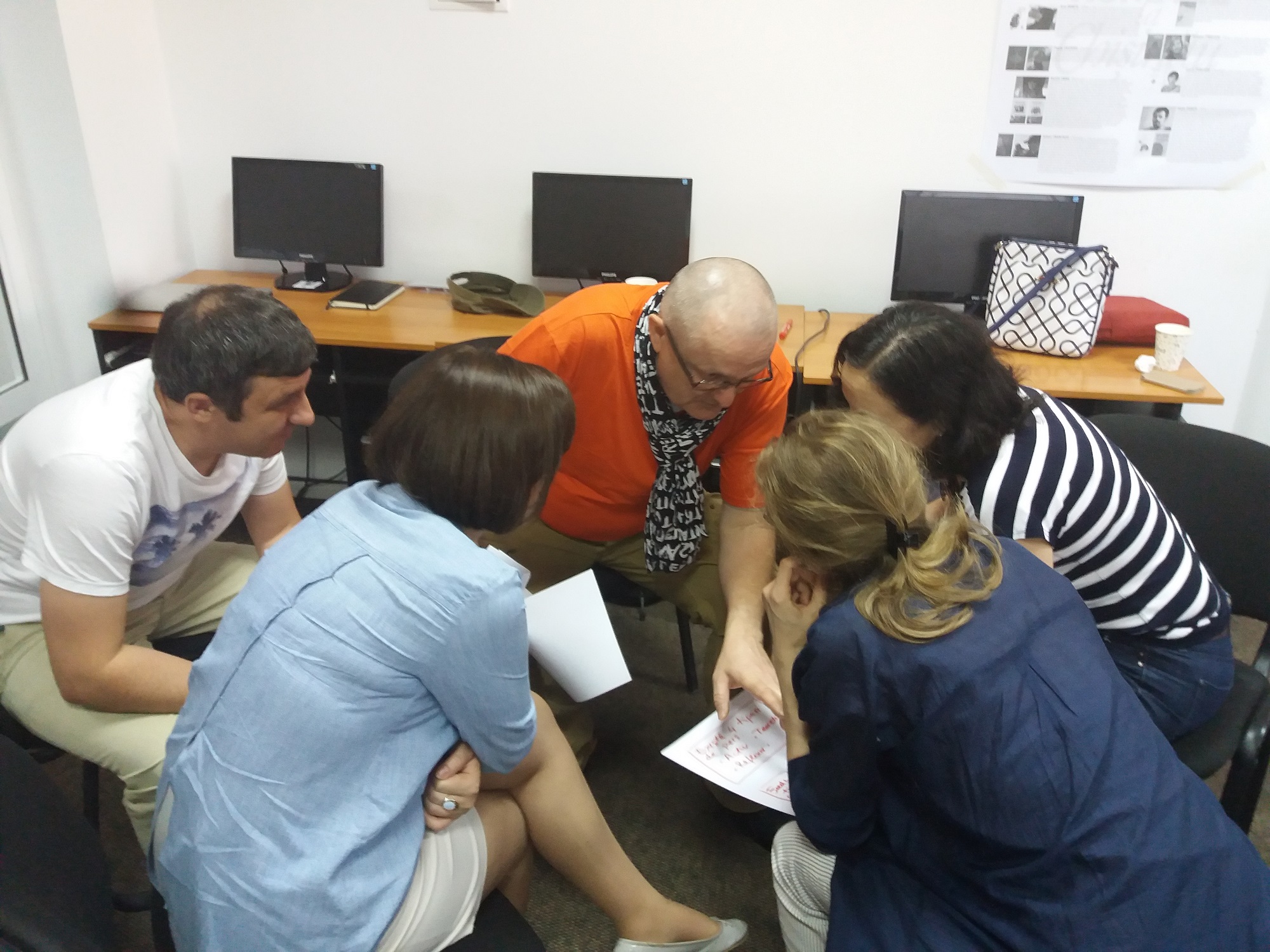Business Journalism: Searching, Analyzing, and Delivering Data and Figures to Readers

What is the difference between a journalist who writes articles on business issues from one who reports on political or social issues? How does one “read” statistics, data, and financial reports correctly? Where can one find information for news reports, interviews, and reports on business issues? These questions were debated at the first specialized course of this year – Business Journalism.
The first module, mostly theoretical, was dedicated to deciphering various business notions and terms. Trainer Vladimir Bolea, businessman and expert in business and law, explained to students how prices are formed in free market economy, as well as such notions as currency exchange rate, supply and demand, interest and dividends, trade balance, import and export, monopoly, competition, remittances, offshore systems, and so on. Young people also learned about the functions of the state, about the existing types of economy, and in the end they discussed money laundering and raider attacks.
The practical part of the course came next, where students were guided by business journalist Ion Chislea. The trainer underlined that a reporter who wishes to specialize in the business field must be able to “read” figures, statistics, and the financial reports of public institutions, and, most importantly, to deliver this information as simply and understandable as possible to citizens. The most difficult, according to students, was focusing on the topic. “At this course, I understood that in a business article, every figure matters. The most difficult thing is to deliver information as simply as possible to the reader,” said student Diana Petrusan at the end of the course.
Is the journalist an entrepreneur? Can he start a business? Can he report both simply and intriguingly about other people’s businesses? It was the theme of the third module of the course – Entrepreneurial Journalism. Although at first glance it seems a strange expression – because many people believe that a journalist cannot and should not engage in business – the trainer Olesea Solpan-Fortuna is convinced that things have changed a lot in recent years. Based on her experience as the president of GEN Moldova - Global Entrepreneurship Network Moldova, she spoke with young people about the entrepreneurial ecosystem and business ideas, and explained to future journalists how a banal idea can become a success story. Students also learned how the state contributes to the development of entrepreneurial culture and noted what skills an entrepreneur should have. And, in order to better understand how a business is launched and run, future journalists did some practical exercises.
These days, the School of Advanced Journalism continues the second specialized course – Political Journalism.
